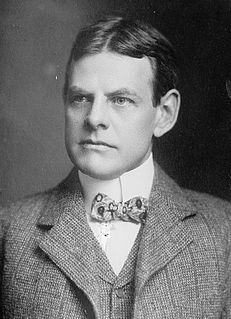A Quote by John Carroll
Nietzsche ... argues that all that passes in the life of a society is ephemeral and banausic except for the presence of great personalities, of men like Goethe ... who seem to forge their own destinies, who seem to move unhampered by those burdens of existence which keep most men from rising above the vicissitudes of their daily toil.
Related Quotes
Rabbits are a foolish people. They do not fight except with their own kind, nor use their paws except for feet, and appear to have no reason for existence but to furnish meals for meat-eaters. In flight they seem to rebound from the earth of their own elasticity, but keep a sober pace going to the spring. It is the young watercress that tempts them and the pleasures of society, for they seldom drink.
Life without sex might be safer but it would be unbearably dull. It is the sex instinct which makes women seem beautiful, which they are once in a blue moon, and men seem wise and brave, which they never are at all. Throttle it, denaturalize it, take it away, and human existence would be reduced to the prosaic, laborious, boresome, imbecile level of life in an anthill.
Why do people speak of great men in terms of nationality? Great Germans, great Englishmen? Goethe always protested against being called a German poet. Great men are simply men and are not to be considered from the point of view of nationality, nor should the environment in which they were brought up be taken into account.
So powerfully does fortune appear to sway the destinies of men, putting a silver spoon into one man's mouth, and a wooden one into another's, that some of the most sagacious of men, as Cardinal Mazarin and Rothschild, seem to have been inclined to regard luck as the first element of worldly success; experience, sagacity, energy, and enterprise as nothing, if linked to an unlucky star.
From Christ on down to Edison, the men who have achieved most have been those who met with the most stubborn forms of temporary defeat. This would seem to justify the conclusion that Infinite Intelligence has a plan, or a law, by which it hurdles men over many obstacles before giving them the privilege of leadership or the opportunity to render useful service in a noteworthy fashion.
The life of West, Nietzsche said, is based on Christianity. The values of the West are based on Christianity. Some of these values seem to have taken a life of their own, and this gives us the illusion that we can get rid of Christianity and keep the values. This, Nietzsche says, is an illusion...Remove the Christian foundation, and the values must go too.
There are many things which swallow up men's thoughts while they live, which they will think little of when they are dying. Hundreds are wholly absorbed in political schemes and seem to care for nothing but the advancement of their own party. Myriads are buried in business and money matters and seem to neglect everything else but this world.
I believe that fallen creatures perish, perish for ever, for only good can live, and good has not been theirs; but how durst men forge our Saviour's words "eternal death " into so horrible a meaning? And even if he did use other words, and seem to countenance such a meaning for them (and what witness have we that He did, except that of men whose ignorance or prejudice might well have interpreted these words wrongly as they did so many others?






































